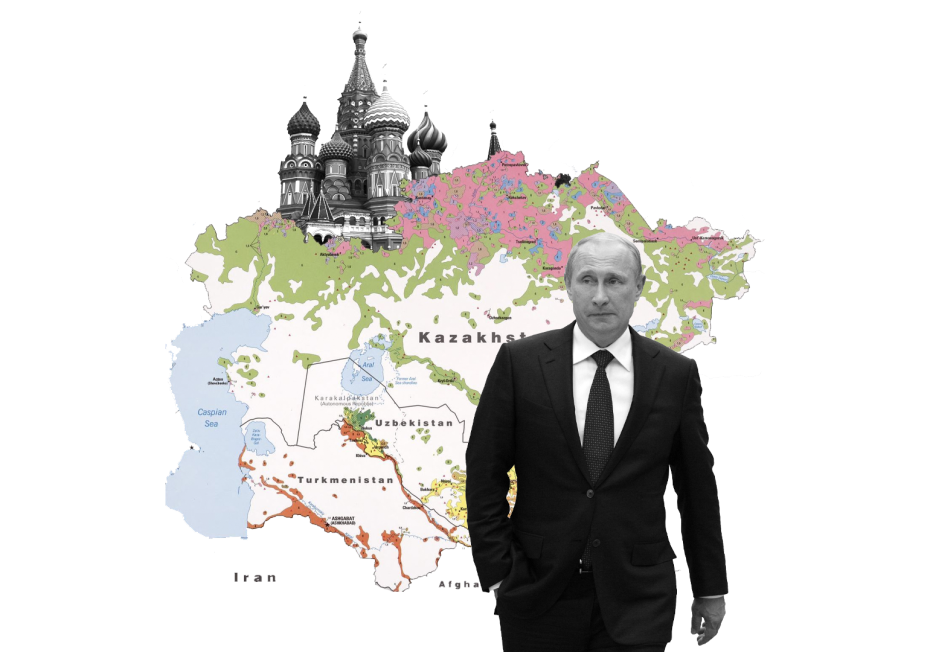Since the beginning of Russia’s unjustified invasion of Ukraine in February, the Central Asian states have sought to distance themselves from Russia, the region’s main strategic and economic partner. Their objective is to limit their dependence on the Kremlin amid tough Western sanctions that can have serious implications on the region as well. Even though Central Asian authorities have remained cautious to criticise Moscow, they have been actively looking for alternative partners. In July, leaders from five Central Asian nations met in the Kyrgyz town of Cholpon-Ata to discuss how to enhance cooperation within the region. While the meeting resulted in the signing of the Agreement on Friendship, Neighbourliness and Cooperation for Development of Central Asia, it did not include Russia as a participant.
Having seen Russia’s waning influence in the region, China has also stepped up its diplomatic engagement. In the beginning of June, Chinese Foreign Minister Wang Yi made a trip to Kazakhstan to attend the third annual China + Central Asia foreign ministers’ (C+C5 or China+Kazakhstan, Kyrgyzstan, Tajikistan, Turkmenistan and Uzbekistan) meeting held in Nur-Sultan on June 8. China’s first diplomat reaffirmed Beijing’s economic interests in the region and expressed “deep concerns about the serious spill-over impact of the Ukraine crisis”. During his meeting with Kazakh President Kassim-Zhomart Tokayev prior to the summit, Yi called on all Central Asian governments to avoid getting into “major power conflicts” or being forced to choose sides.
The C+C5 summit ended with statements on cooperation, deepening trade ties and improved transport links, including a long-discussed China-Kyrgyzstan-Uzbekistan railroad project. The ministers reached a ten-point agreement on cooperation in areas ranging from the Belt and Road projects, regional transport connectivity, Afghanistan security, economy and trade investments. It seems like Russia’s influence in Central Asia is waning, China’s active engagement with the region can create new economic and infrastructure opportunities in the region.
Russia’s unprovoked war against Ukraine has led to fears in Central Asian capitals that the Kremlin might use the same strategy in the region. Russia’s actions especially worry Kazakhstan which shares around a 7600km border with its northern neighbour. Kazakhstan also possesses a large community of Russians who reside in the northern regions of the country. Kazakh authorities try to avoid tensions with its northern neighbour and not to share the fate of Ukraine. Nevertheless, they are making it clear that it is willing to diversify its economic linkages with the West and major economic powers in Asia, such as China.
During a panel discussion with Putin at the latest St. Petersburg International Economic Forum held on June 17, Tokayev did not express support for Putin’s decision to invade Ukraine and made it clear that Kazakhstan does not support the rationale for the attack. Replying to a question of notorious Kremlinist Margarita Grigoryan about the Russian military intervention in Ukraine, Tokayev emphasised that Kazakhstan does not and will not recognize quasi-state territories, such as Luhansk and Donetsk along with Abkhazia and South Ossetia.
Against the backdrop of a series of harsh statements made by the Kazakh President, Russia limited the shipment of oil from Kazakhstan through a Black Sea port in Novorossiysk, the main route for transporting Kazakh oil to Europe. Later, reports emerged that Kazakhstan suspended the transit of 1700 wagons of Russian coal on its territory in response to Moscow’s decision to block Kazakh oil. Recently, it was announced that Kazakhstan will be exporting some of its crude oil through Azerbaijan’s biggest oil pipeline from September. Relying on Azerbaijan would allow Kazakhstan to sidestep Russian territory. In this situation, increased cooperation with Beijing can be a way to hedge against the military threat from Russia, evade Western sanctions imposed on Moscow and boost infrastructure in the region crucial for alternative routes of energy exports.
Connectivity is one of the key parts of China’s strategy with Central Asia. The ongoing Russian invasion of Ukraine and the consequent Western sanctions have largely impacted the connectivity of the Eurasian continent. The Northern transit route via Russia which has been used by China to reach Europe by rail has been hobbled by Western sanctions against Russia. Hence, the Chinese government is seeking alternative routes to ensure undisrupted trade flows. This gives Central Asia along with the South Caucasus a geoeconomics advantage.
In the meantime, the importance of the Trans-Caspian International Transport Route (TITR) or so-called Middle Corridor has skyrocketed in the past several months. International shipping companies have already started transporting goods via the Middle Corridor. For instance, Maersk, a Danish shipping corporation, introduced a new rail-sea shipping service connecting Asia to Europe through the Middle Corridor via the South Caucasus and Central Asia. At the same time, Finnish company Nurminen Logistics started shipping from China to Europe via the trans-Caspian route. Cargo shipments through the Middle corridor are projected to increase sixfold in 2022. Hence, Russia’s unjustified war has led Central Asian states to look away from the Kremlin. The attempts to distance from Moscow might open up significant opportunities which can boost the region’s geostrategic importance.










